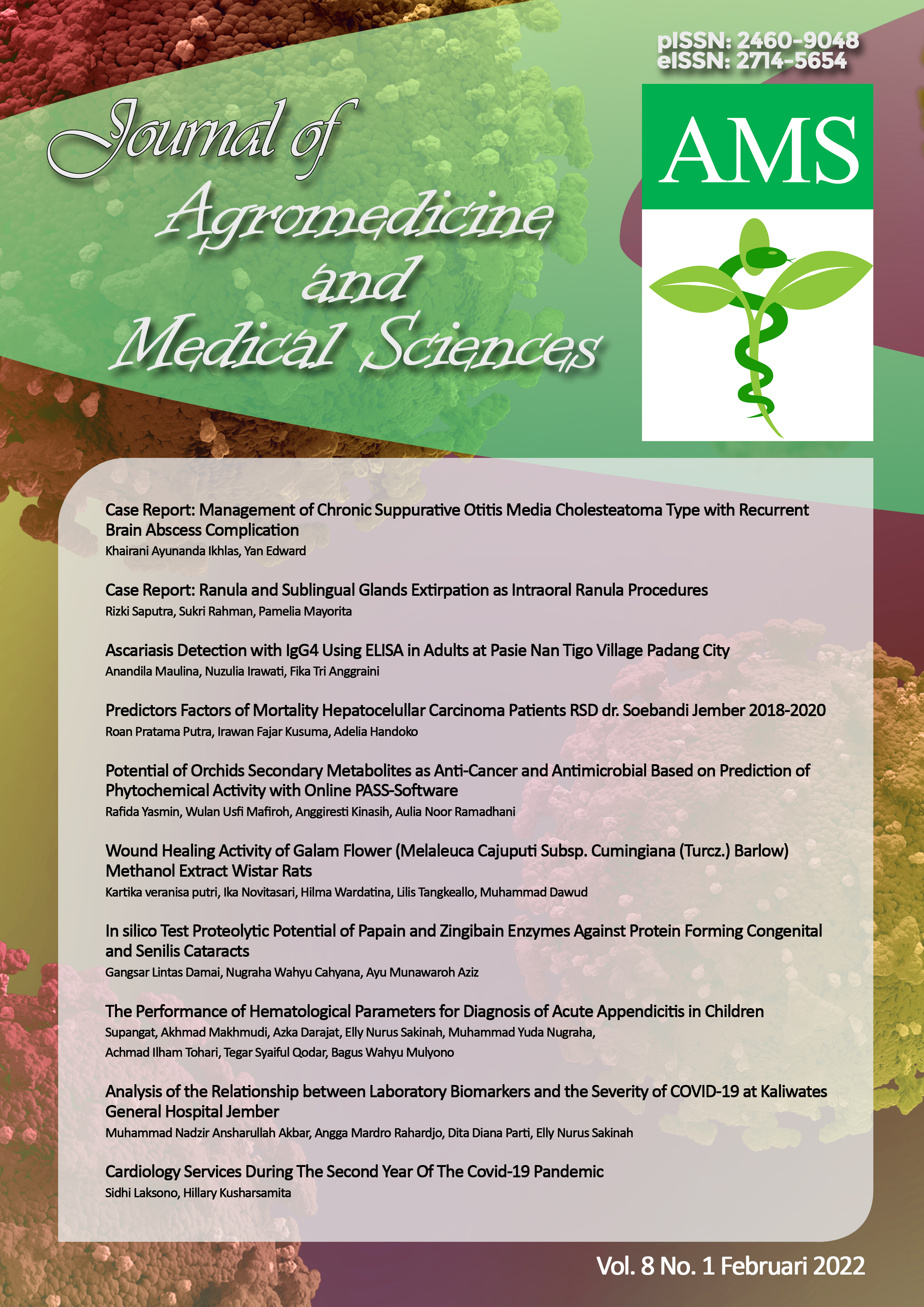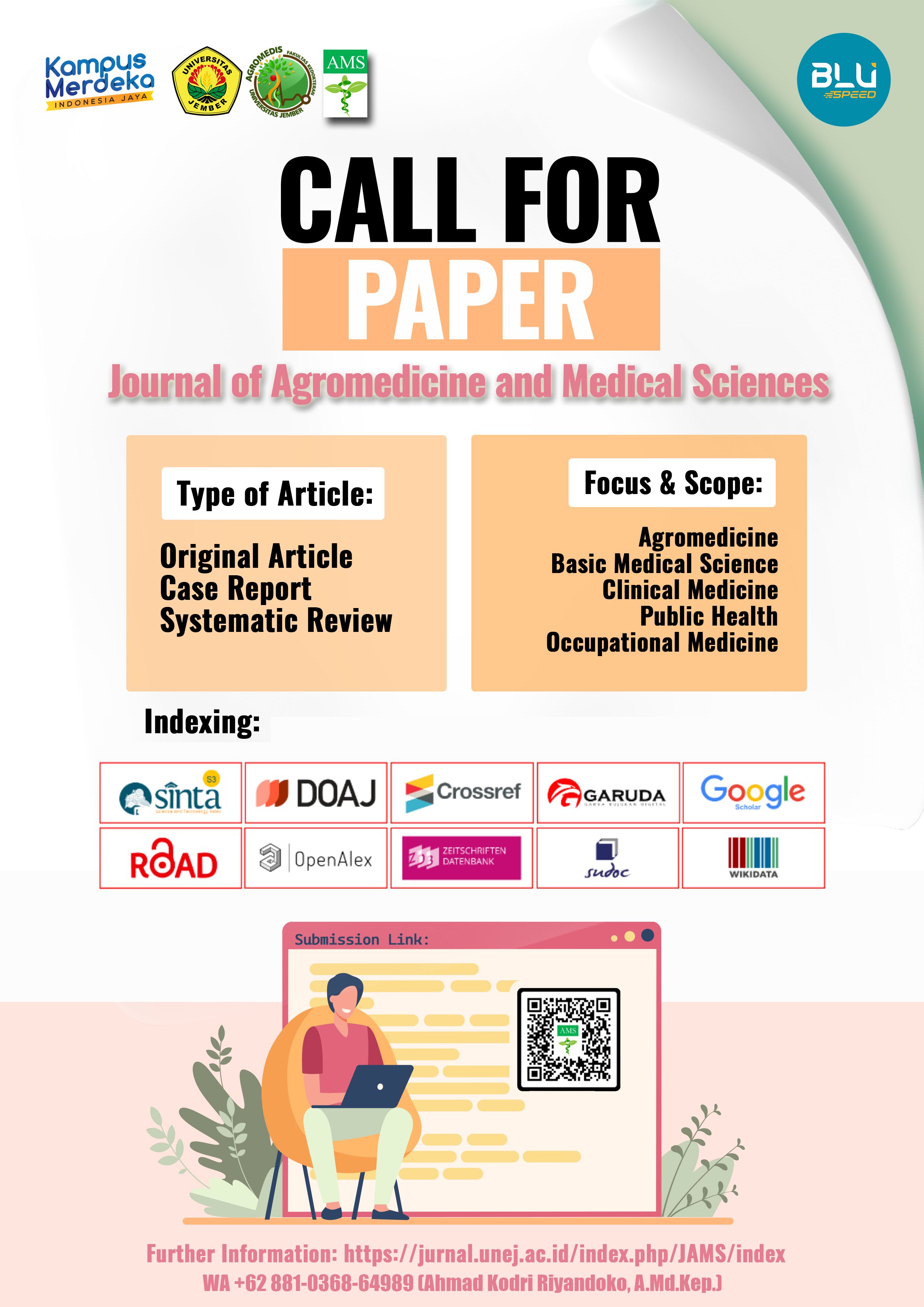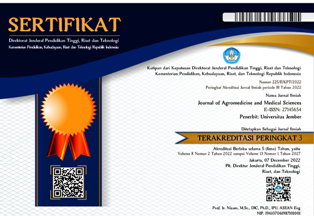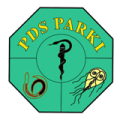Potential of Orchids Secondary Metabolites as Anti-Cancer and Antimicrobial Based on Prediction of Phytochemical Activity with Online PASS-Software
Abstract
Abstract
Orchidology is part of the branch of botany, it deals with a large family of monocotyledonous plants, Orchidaceae. Orchids have been used as traditional herbal medicines in Indonesia which are believed to be antimicrobial and anti-cancer. Orchids are able to produce secondary metabolites as their protective agent due to the extreme environment. Orchids have great diversity and potential to be the object of research, not only in experimental studies but also in a computational studies like in silico. Nowadays, molecular or metabolite data are available on the official-standard website as an international database. This study was conducted by analyzing web-based data to provide information about the potential of orchids that have been trusted as herbal medicines. In this study, secondary metabolite from Vanilla spp., Dendrobium spp., and Vanda spp., were selected in the existing literature as antimicrobial and anti-cancer drugs. Secondary metabolites obtained from the KNApSAck-3D core system and Phytochemical and Prediction of Substance Activity Spectrum (PASS) were performed to determine the potential anti-cancer and antimicrobial activity. Based on in silico analysis through PASS online, the secondary metabolites of orchids that have potential as antimicrobials in this study were Dendroside E and Dendromonilised D from Dendrobium also Parviflorin, Licoisoflavone and Luteine extracted from Vanda spp. The secondary metabolite of Vanilla planifolia which has potential as anti-cancer for further research is 4-Hydroxybenzoic acid as a Chlordecone reductase inhibitor extracted from shoots.
Keywords: orchid, antimicrobial, anticancer, secondary metabolite, PASS online

This work is licensed under a Creative Commons Attribution-ShareAlike 4.0 International License.








_ENG1.png)
_ENG1.png)



















